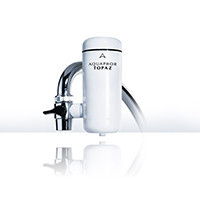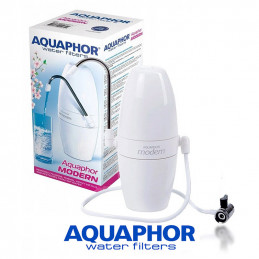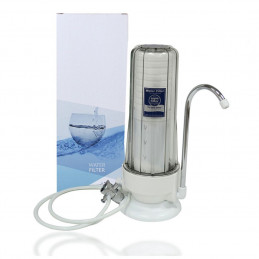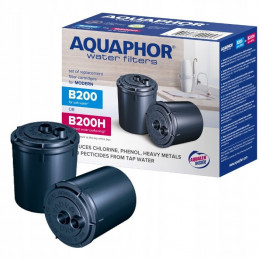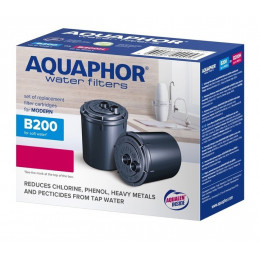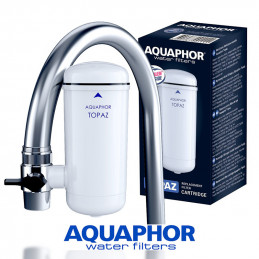- There are no more items in your cart
- Shipping
- Total 0.00 zł
- Bestsellers
- Wholesale
- Water filters
- Whole house filters
- Kitchen filters
- Bathroom filters
- Aquarium filters
- Reverse osmosis
- Water demineralizers
- Filter cartridges
- UV bactericidal lamps
- Alkaline water ionizers
- Industrial water filters
- Accessories, parts, and others
- Descaling filters for the coffee machine
- Water softeners and iron removers
- Water saturators
- ACES
- AMBERLITE
- AQUA VITA
- AQUAFILTER
- AQUAPHOR
- AQUATOR
- BASSAU
- BERG
- BIOCERA
- BIONIQ
- BLUEFILTERS
- CHEMOFORM
- CINTROPUR
- DAFI
- DELONGHI
- DIAMOND
- DOM WODY
- ECOWATER
- FILMTEC
- FIT ALCO
- FITAQUA
- GREEN FILTER
- HANNA INSTRUMENTS
- HELIXPRO
- HELLO PURE
- HIDROTEK
- HM-DIGITAL
- HONEYWELL
- Ibo
- JAVEL
- KLARWOD
- KRUPS
- MIDEA
- OTOWODA
- OTTONE
- Palintest
- PENTAIR
- PHILIPS
- PLATINUM WASSER
- PUROLITE
- SIEMENS
- Steingraf
- SUPREME
- TAB-SOL
- TOP FILTER
- UST-M
- USTM
- VONTRON
- WODARO
Tips
Faucet Filters
Clean water is essential, however, various contaminants such as chlorine, heavy metals, pesticides, bacteria, and viruses can appear in tap water. Faucet filters provide an interesting alternative to filter jugs, offering a practical and economical solution that allows users to improve the quality of H2O without the need to install complicated filtration systems.
Filter
Price
Brand
How do faucet filters work?
Faucet water filters work by allowing water to pass through various filtration materials that trap impurities. This mechanism can involve several stages of filtration, depending on the filter model. The most commonly used solutions for obtaining filtered water include:
-
Mechanical filtration – in the first stage, water flows through a mechanical filter that traps larger solid particles such as sand, rust, and sediments. The materials used for this type of filtration are usually polypropylene fibers or stainless steel mesh.
-
Carbon filtration – the next stage is usually carbon filtration, during which water passes through activated carbon that has a large adsorption surface. This effectively removes excess chlorine, organic compounds, pesticides, and some heavy metals. Carbon filtration significantly improves the taste and smell of water.
-
Chemical filtration – some faucet filters use special ion-exchange resins to remove heavy metals such as lead, mercury, and cadmium. These resins work on the principle of ion exchange, replacing harmful metal ions with safe sodium ions.
-
Microbiological filtration – more advanced models use microbiological filters that eliminate bacteria and viruses. These can be ceramic filters or ultrafiltration membranes capable of trapping microorganisms of very small sizes.
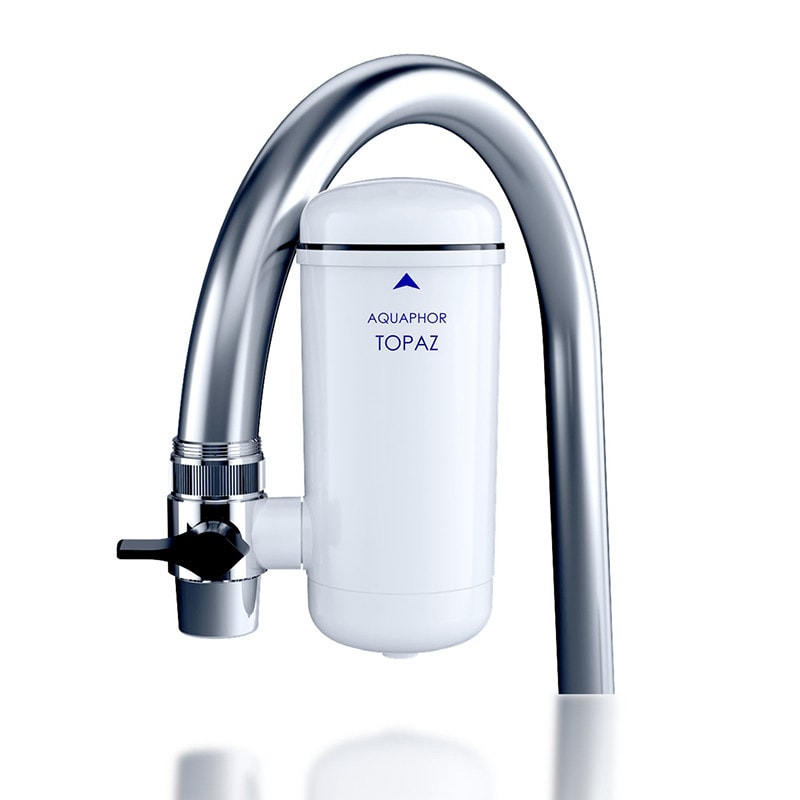
Faucet water filtration - main advantages
Improvement of water quality
A faucet water filter significantly improves water quality by removing chemical, mechanical, and biological impurities. As a result, the water is clean, tasty, and safe for consumption. Carbon filters eliminate chlorine and organic compounds, enhancing sensory perceptions. Mechanical filters remove solid particles such as sand and rust, making the water clear. Meanwhile, chemical and microbiological filters eliminate heavy metals and microorganisms, effectively protecting users' health.

Ease of installation and use
Faucet filters are relatively easy to install and use. Most models can be mounted without the need for specialized tools or professional help. Replacing filter cartridges is equally simple and usually takes no more than a few minutes. This makes faucet filters a convenient and practical solution for any household.
Cost-effectiveness
A faucet water filter is a cost-effective solution compared to purchasing bottled water. The initial cost of buying a filter and regular cartridge replacements is significantly lower than the ongoing expenses for bottled water. Additionally, using faucet filters reduces plastic waste, positively impacting the environment.

Health protection
By effectively removing impurities, faucet filters protect users' health. The elimination of heavy metals, bacteria, and viruses prevents many diseases and allergies. Chemical filters remove harmful compounds that can have long-term health effects, such as kidney, liver, or nervous system diseases.
Reduction of corrosion risk
Using faucet filters can also reduce the risk of corrosion in water systems. Removing metallic particles and chemical impurities from water decreases the buildup of limescale and rust in pipes and appliances, thereby extending their lifespan and improving their efficiency.
Faucet filter – key components
Filter cartridges
Filter cartridges are the heart of every faucet filter. They are responsible for trapping impurities and improving water quality. One of the more popular models is filter cartridges with activated carbon.
Filter housing
The filter housing is the component that protects the filter cartridges and allows for easy installation on the faucet. It can be made from various materials, such as:
-
Plastic – lightweight and easy to install, often used in cheaper filter models.
-
Stainless steel – more durable and corrosion-resistant, used in high-quality filters.
-
Polycarbonate – a transparent material that allows for visual inspection of the filter cartridge's condition.
Valves and seals
Valves and seals are essential components that ensure the tightness of the filtration system and allow for control of water flow. High-quality products of this type prevent leaks and ensure long-lasting, trouble-free operation of the filter.
Adapters
Adapters allow the filter to be mounted on various types of faucets, ensuring compatibility with virtually all plumbing systems. They make the installation of the equipment much simpler.
Cartridge usage indicators
Some faucet filters are equipped with cartridge usage indicators that inform the user when it is time to replace the cartridge. These indicators can be mechanical or electronic and are very useful for maintaining consistent filtration effectiveness.
Faucet water filters at MojaWoda.com
Faucet filters are an efficient and economical solution that provides constant access to filtered drinking water, free from most unwanted substances. Their biggest advantages? Primarily the improvement of water taste and smell, simple installation and replacement of consumables, and low maintenance costs.
Do you want to enjoy safe water in your kitchen every day? Check out our offer of faucet filters that will ensure effective water treatment, removing, among other things, mechanical and chemical impurities.
FAQ – frequently asked questions
1. Why is it worth using faucet filters?
Faucet filters improve water quality by removing chemical, mechanical, and biological impurities. As a result, the water becomes clean, tasty, and safe for consumption.
2. How do faucet filters work?
Faucet filters allow water to pass through various filtration materials that trap impurities. This process can involve mechanical, carbon, chemical, and microbiological filtration.
3. What impurities do faucet filters remove?
Faucet filters remove chlorine, heavy metals, pesticides, bacteria, viruses, and solid particles such as sand or rust. They also improve the taste and smell of drinking water.
4. Is the installation of faucet filters complicated?
No, faucet filters are relatively easy to install and do not require specialized tools or professional help. Most models can be mounted independently.
5. What are the costs of using faucet filters?
The initial cost of purchasing a filter and regular cartridge replacements is significantly lower than the cost of regularly buying bottled water. Therefore, faucet filters are a very economical solution.




